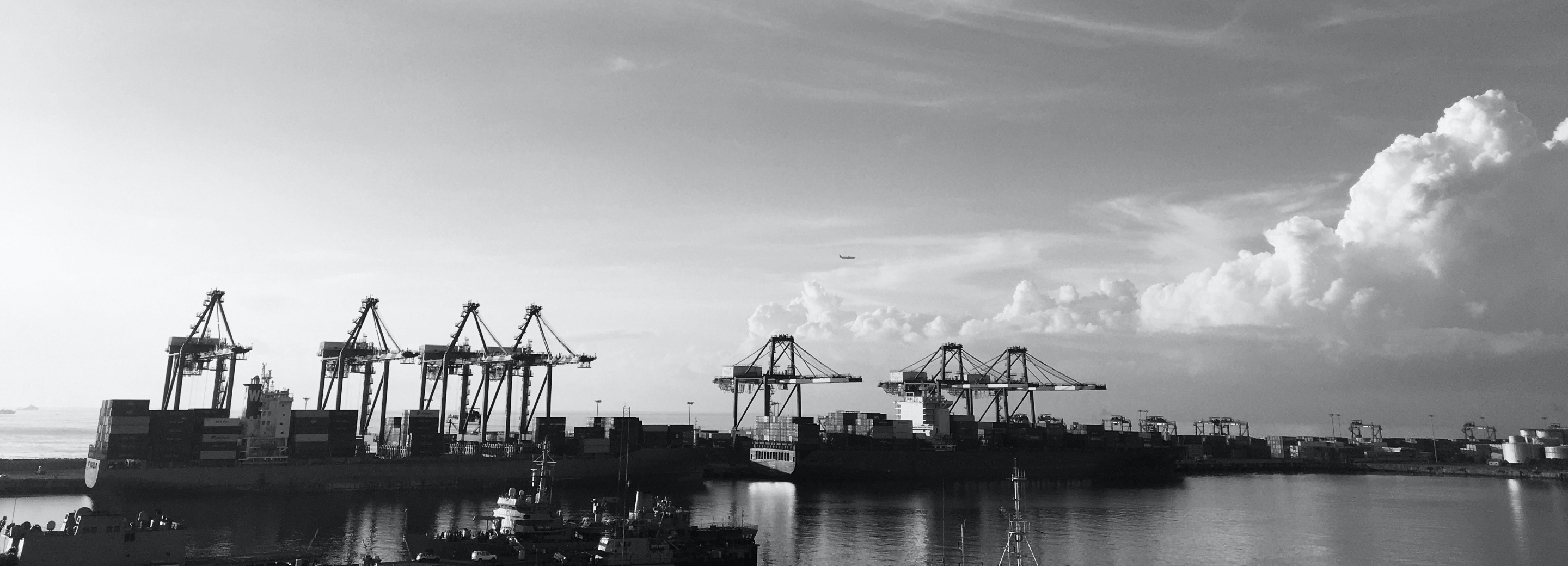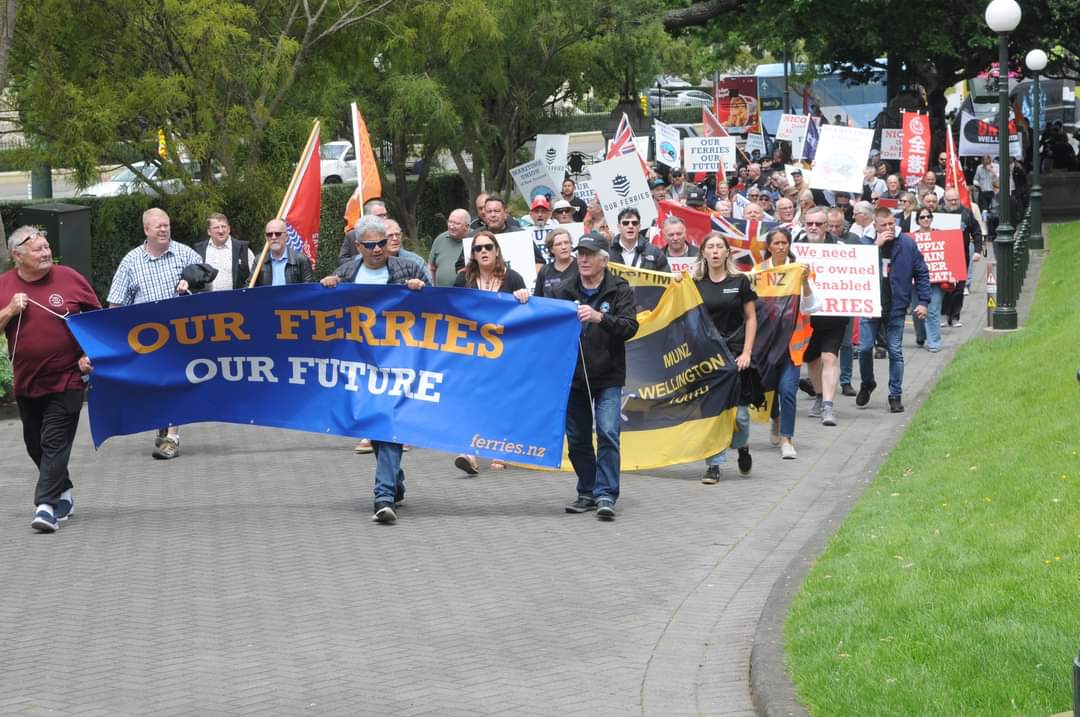
The ITF joins affiliates at Wellington rally demanding new, publicly-owned ‘Interislander’ ferries.
The International Transport Workers’ Federation (ITF) and representatives of affiliated trade unions from Europe, the Asia-Pacific, the USA and Canada took to the streets of New Zealand this week to support the Maritime Union of New Zealand’s (MUNZ) demand for new, publicly owned ‘Interislander’ ferries.
The demo in Wellington took a strong message to government that it must replace the vital, ageing fleet of ferries that have connected New Zealand’s North Island and South Island since the 1960s with a new generation of publicly-owned, rail-enabled ferries.
Placards bearing messages including “Sort your ship out”, “Our Ferries, Not For Sale” and – targeting Finance Minister, Nicola Willis – “Nicola: Don’t Abandon Our Ferries” were on clear display as the rally snaked through the capital city.
ITF Ferry Taskforce Chair, Ronny Øksnes, spoke to gathered activists in front Parliament, where he decried the vested interests that can lead to decisions about ferries being centered on private profit instead of public need.
“It could be a hedge fund in New York or Hong Kong that decides if these ferries sail,” he said to loud cheers of support. “We have just gone through a pandemic, and ferries are more crucial than ever – we need ferries to bring goods, we need ferries to bring medicines, and we need a way for people to travel.
“People can’t all afford to fly between the North and South Island, they need a reasonable, affordable way to travel.”
The Interislander service is a critical part of New Zealand’s transport infrastructure and is the primary carrier of freight and non-aviation passengers between the country’s two main islands, connecting Wellington, in the North Island, with Picton, in the South Island.
The road and rail ferry service has been run since the 1960s by state-owned KiwiRail and was due to be replaced by two large, rail-enabled ferries under a fixed price contract with Hyundai Mipo Dockyard.
However, in February this year – only three months after a new National Party government was elected – Willis cancelled the contract, citing spiralling costs. MUNZ estimates that the cancellation itself will cost NZ$500 million – adding to NZ$500 million already spent.
There are now concerns that the government is considering advice that recommends splitting the ferry service from KiwiRail in order to purchase two smaller, non-rail-enabled ferries – alongside privatising or part-privatising the service.
ITF affiliate MUNZ believes that such a move would form an attempt to de-unionise the service and significantly reduce transport workers’ terms and conditions. It would also build on a trend of considerable underinvestment in New Zealand’s fleet and port infrastructure in recent decades.
“We have seen the impact of privatisation on this kind of lifeline service elsewhere in the world and it has inevitably come at great cost to freight customers and to the public,” Øksnes said.
“Just as significant is the threat that this would pose to rail in Aotearoa New Zealand. Rail produces 70% fewer emissions than road freight and losing that would make it harder to meet international climate obligations.
“The rest of the world is taking carbon out of their supply chains, so putting more in would be a backward step for Aotearoa New Zealand’s exporters.”
The Maritime Union of Australia (MUA), the Norwegian Seafarers’ Union (NSU), the Associated Philippine Seafarers' Union (APSU), the International Longshore and Warehouse Union (ILWU – USA, Canada), the International Longshoremen's Association (ILA - USA) and the All Japan Dockworkers' Union (ZenKowan) were among the affiliates taking to the streets of Wellington to show solidarity with MUNZ.
“We understand the New Zealand government is concerned about cost, however, transport infrastructure is a long-term investment that ensures good jobs and efficient supply chains,” said ITF Maritime Policy Adviser, Sadie Saunders.
“These are projects that should be measured across decades and in the context of the whole economy. This is why we are supporting our Aotearoa New Zealand affiliate members’ calls for new ferries to be publicly-owned and rail-enabled.”
The government says it will decide what will replace the current interisland ferries by the end of the year.
END
- Follow this Facebook page to keep up to date with MUNZ’s ‘Our Ferries, Our Future’ campaign.
- Join more than 10,000 people who have already signed this petition to Nicola Willis demanding publicly-owned, rail-enabled interisland ferries.
